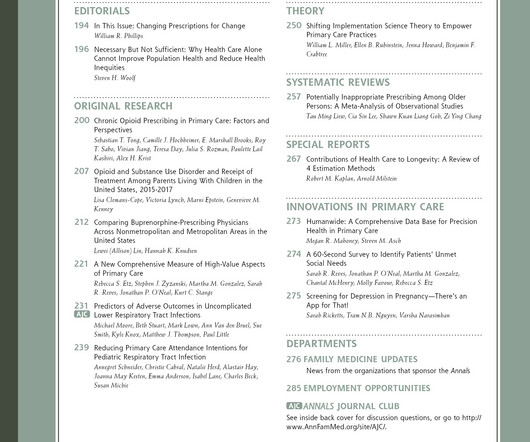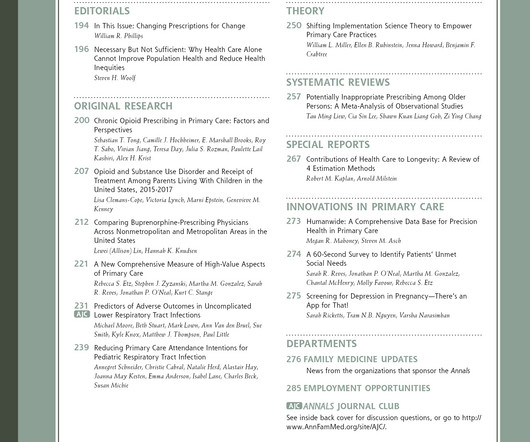Beyond Training: How Context Matters for Early Detection of Alzheimers Disease in Primary Care [Screening, prevention, and health promotion]
Annals of Family Medicine
NOVEMBER 20, 2024
referral networks, technology infrastructure) to drive the transformation needed to facilitate early detection for cognitive impairment in primary care. Conclusions To meet pressing needs for ADRD diagnosis and management, early detection of cognitive issues in primary care settings is needed.
















Let's personalize your content